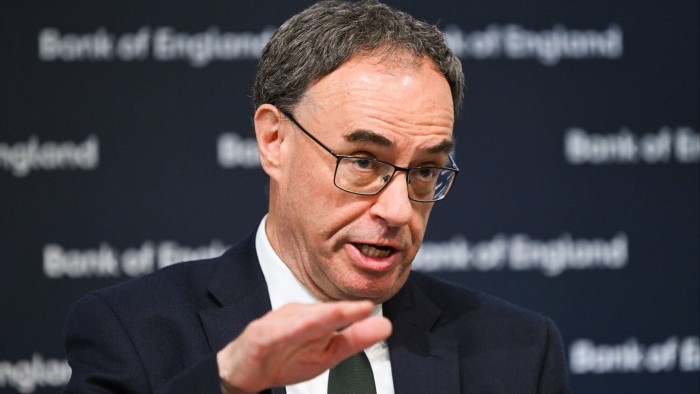Unlock the Editor’s Digest for free
Roula Khalaf, Editor of the FT, selects her favourite stories in this weekly newsletter.
Britain’s trade deal with the US is “good news” but still leaves the effective tariff rate higher than before Donald Trump began increasing barriers on America’s partners, the governor of the Bank of England has said.
Andrew Bailey on Friday warned that the impact of the trade war on the UK economy would depend in part on other countries’ deals with the US president, and stressed that uncertainty was hitting British businesses.
“It will leave the effective tariff rate higher than it was before all of this started. I do think we need to bear that in mind,” Bailey told a conference in Reykjavik.
“The impact of all this development on the trade front on the UK outlook is conditional not only on the UK trade agreement but also what the rest of the world agrees as well,” he added, even as he welcomed the deal as “good news”.
The BoE on Thursday cut its benchmark interest rate by a quarter point to 4.25 per cent as it unveiled forecasts that showed the wider global trade conflict will have “quite a negative impact on the UK outlook”, according to Bailey.
This had been partly offset by financial market movements that eased some of the pressure, he said. In its latest forecasts on Thursday, the BoE estimated that global trade tensions would lower the level of UK GDP by 0.3 per cent in three years’ time.
The central bank predicted UK economic growth of 1 per cent this year and 1.25 per cent in 2026.
The UK on Thursday clinched the first deal with the US since Trump started imposing high tariffs, agreeing cuts to punitive levies on car and steel exports, but failing to reverse a flat 10 per cent levy that applies to most goods.
“When I go around the country in the UK, businesses say to me: ‘We are delaying investments because we are just too uncertain about what the world is going to look like’,” Bailey added.
Two members of the BoE’s Monetary Policy Committee — Swati Dhingra and Alan Taylor — voted for a half-point cut this week, while chief economist Huw Pill joined Catherine Mann in backing no change.
Bailey voted with the majority in favour of a reduction to 4.25 per cent, a level last seen in 2023.
On Friday, he said there had been a case for a larger half-point cut because of the trade uncertainty but that such a reduction risked being “out of proportion”, since inflation was primarily driven by domestic factors.




